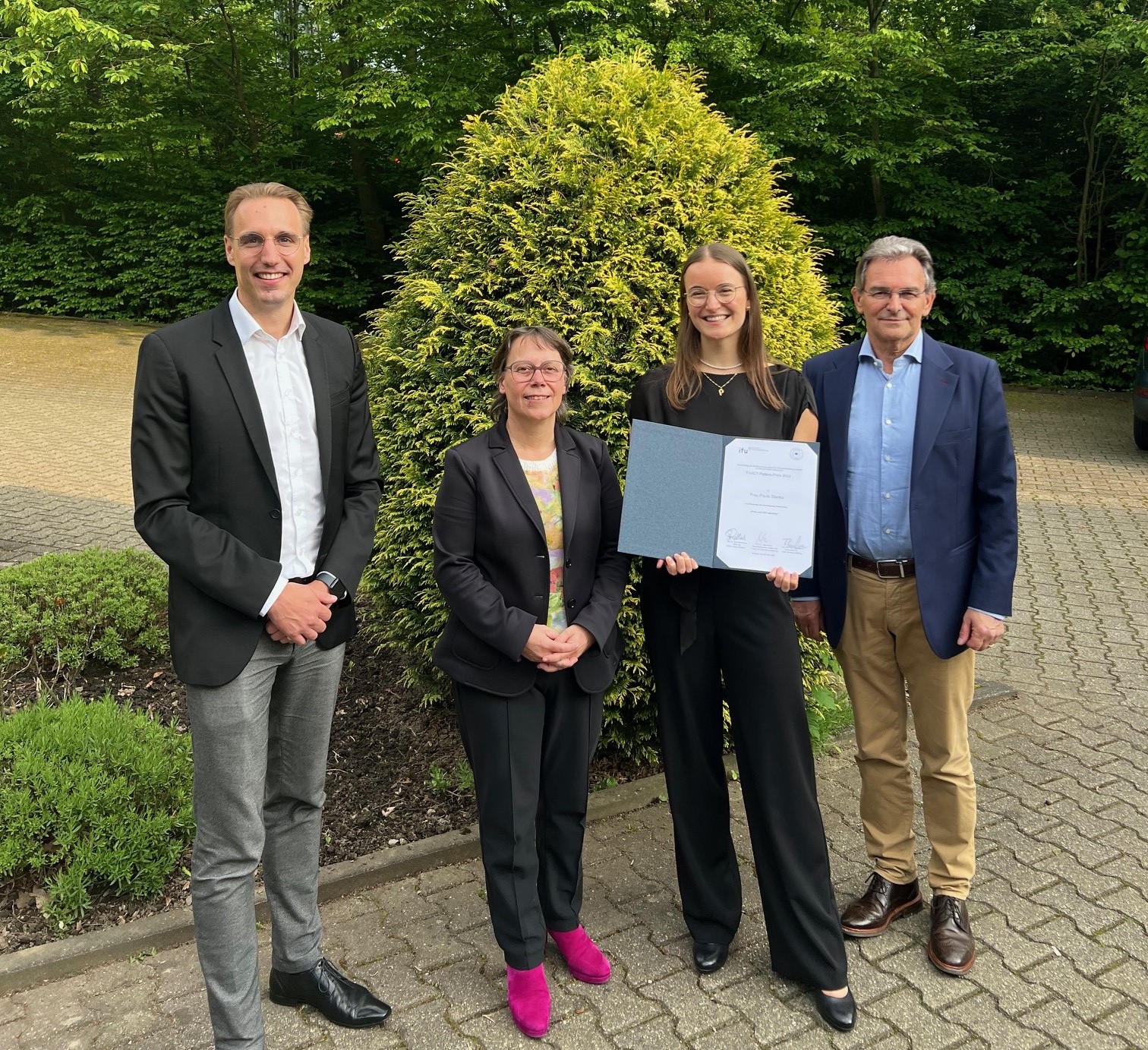FAACT-Pellens Award 2024
On May 8, 2024, the FAACT-Pellens Award 2024 was given as part of the graduation ceremony of the Faculty of Business Administration and Economics at the Ruhr University Bochum. This award, established by Prof. Dr. Bernhard Pellens by founding the Bernhard Pellens Foundation at the end of 2019, is awarded to outstanding master's theses and dissertations in the fields of controlling, accounting, auditing, taxation or corporate finance, which are characterized by a high degree of practical relevance in terms of problem definition and results. The award is open to students of Ruhr-Universität Bochum and students of other universities if they were supervised by university professors who were academically trained at the Institute of Management Accounting.
The work to be honored is selected by the Board of the Alwin Reemtsma Foundation, which includes the Chancellor of Ruhr-Universität Bochum, on the recommendation of the Institute for Corporate Management (ifu) at Ruhr-Universität Bochum.
This year's FAACT-Pellens Award went to Ms. Paula Stanka for her outstanding Master's thesis on “Firms and CSR reporting”, which was supervised by Prof. Dr. Martin Nienhaus. The award was presented by the Chancellor of Ruhr-Universität Bochum, Dr. Christina Reinhardt.
After completing her Master's degree at RUB (Master of Science in Finance, Accounting, Auditing, Controlling & Taxation) in September 2023, Ms. Stanka will work as a research assistant at the Chair of Financial Accounting (Chair holder: Prof. Dr. Martin Nienhaus).

The photo shows, from left to right, Prof. Dr. Martin Nienhaus, Dr. Christina Reinhardt, Lotta Kroll and Prof. Dr. Bernhard Pellens.
© ifu, Feldmann
Firms and CSR reporting
Scope and content of sustainability reporting by non-listed companies in Germany
The Corporate Sustainability Reporting Directive, or CSRD for short, came into force in January 2023. This deals with sustainability reporting by companies in Europe. The aim of this regulation is to raise awareness of sustainability among all European companies and standardize sustainability reporting. For this reason, not only will new standards for sustainability reporting in Europe (ESRS; European Sustainability Reporting Standards) be published, but the companies that fall under the reporting obligation of the CSRD will be successively expanded in the coming years until 2028.
It is no longer only large listed companies that are obliged to report on sustainability, but also large non-listed companies and small and medium-sized listed companies. Due to the increasing requirements and demand from various stakeholders (reference groups of companies, such as business partners, lenders and banks, customers and employees), the question also arises as to whether non-listed companies are already accepting the costs and collecting and publishing non-financial information in their reports.
In her thesis, Ms. Stanka conducts a text analysis that examines the scope and content of non-financial sentences already contained in the management reports of non-listed companies in Germany. The data basis for this study is the management reports of the last public financial year of 445 medium-sized and large non-listed companies. The analysis is based on the first German word list containing words from environmental and social contexts. The analysis is therefore also the first analysis to evaluate non-listed companies and their German management reports. The results of their work show that despite the reasons, such as the costs of reporting itself or the disclosure of sensitive data, which speak against sustainability reporting by non-listed companies, few of the companies already disclose environmental or social information. Nevertheless, the content analysis of the identified sentences using the sustainability word list shows that the published content is still very general.
In summary, Ms. Stanka's analyses show that unlisted companies in Germany will face a number of challenges and costs as a result of current developments and increasing requirements in sustainability reporting.

